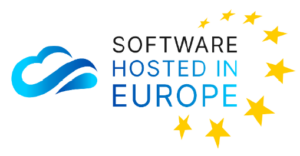When in France, Pay Like the French Do
Doing business in France comes with its own set of rules—not just legal or cultural, but practical ones. Especially when it comes to how people pay.
France is a country that’s both fiercely proud of its traditions and surprisingly receptive to change, the way consumers and businesses handle payments reveals a lot about how France works—and how businesses outside it can succeed within it.
Whether you’re launching an eCommerce business targeting French consumers, entering a B2B agreement, or opening a physical store, understanding how payments work in France isn’t just a technical requirement. It’s a competitive advantage.
Let’s walk through the landscape.
1. French Payment Preferences: A Balance of Card, Culture, and Control
Cards Dominate, But Not Alone
The French love their carte bancaire—and most of the time, this means Carte Bancaire (CB), the national debit card system. Often co-branded with Visa or Mastercard, CB cards are accepted almost everywhere.
But don’t make the mistake of thinking that credit cards hold the same sway as in the US. French consumers generally prefer debit over credit, and often steer clear of debt-based payments unless absolutely necessary.
That’s not to say credit cards aren’t used—but you’re more likely to find them in corporate or luxury spending scenarios than in everyday online purchases.
Digital Wallets and Mobile Payments: Gaining Ground
Adoption of Apple Pay and Google Pay is rising, especially among younger consumers in cities like Paris, Lyon, and Marseille. France has also seen a moderate uptake in PayPal, particularly for online transactions.
However, digital wallets haven’t overtaken traditional cards yet. Unlike Nordic countries, France still maintains a preference for tangible payment options—though the trajectory is clearly digital.
2. Bank Transfers and SEPA: The Backbone of B2B
In B2B payments, SEPA bank transfers (virements) are the standard. They’re fast, reliable, and cost-effective within the Eurozone. Businesses rely heavily on them for both recurring payments (like invoices or rent) and one-off settlements.
For eCommerce platforms, SEPA Direct Debit can be a powerful tool—especially for subscription models or recurring billing. French consumers tend to trust bank-linked solutions and like having predictable, controlled payment schedules.
If you’re dealing in any regular, invoice-based payment structure, integrating SEPA features is not optional. It’s expected.
3. Cheques: Yes, Still a Thing (But Barely)
It might surprise many non-Europeans to learn that cheques are still legally valid and occasionally used in France—especially for large personal expenses like rental deposits or school fees.
However, their use is declining sharply, and they’re rarely seen in eCommerce or fast-moving business transactions.
If you’re launching an online business, you can safely ignore them. If you’re opening a local office or service-based enterprise, be aware of their presence—but don’t plan around them.
4. Fraud, Compliance, and Regulation: Playing by the Rules
France is part of the EU, and therefore aligned with PSD2 (Payment Services Directive 2). This means Strong Customer Authentication (SCA) is required for most online card payments.
What does this mean for you?
-
Two-factor authentication (2FA) is standard.
-
Customers might need to enter a one-time code from their bank app or approve payments via biometric verification.
-
Transactions that don’t comply may be blocked—even if the customer has the funds.
This adds friction—but it also adds trust. French consumers are generally privacy-conscious and appreciate layers of protection. Businesses that invest in compliant, secure payment flows often see better conversions than those who try to cut corners.
5. Local Expectations: Language, UX, and Trust
Don’t underestimate the importance of localization.
A French customer on a checkout page wants to see:
-
Their language,
-
Their currency (Euro),
-
Their preferred payment methods,
-
A familiar UI/UX pattern, and
-
A clearly stated refund or returns policy.
A small but often overlooked detail: Include CB logos along with Visa/Mastercard. This subtle signal shows you understand the French system—and increases trust.
Also, French consumers tend to be more skeptical than some other markets. A clean, well-translated, and legally transparent checkout process goes a long way in reducing cart abandonment.
6. What About Installments? Buy Now, Pay Later in France
Buy Now, Pay Later (BNPL) is growing in France, but it’s not yet as mainstream as in markets like the US or UK.
That said, providers like Alma, Oney, and Klarna have made significant inroads, especially for purchases above €100. French shoppers like the idea of “paiement en plusieurs fois” (payment in multiple parts), particularly for electronics, fashion, and furniture.
If your product falls in one of those categories, adding BNPL at checkout can meaningfully improve conversion rates.
7. Cross-Border Considerations: Tax, Returns, and Logistics
If you’re selling into France from another country, especially outside the EU, you’ll need to consider:
-
VAT (TVA) compliance,
-
Transparent pricing (including duties and shipping),
-
Return options, and
-
A clear customer service policy—preferably in French.
Also, make sure your payment system handles multi-currency transactions smoothly—even if your main currency is Euro. Currency mismatch can cause confusion and chargebacks.
8. Integration Tips for Merchants
Here’s a checklist to ensure your French customers feel at home on your platform:
- Accept CB/Visa/Mastercard
- Enable Apple Pay & Google Pay
- Support SEPA Direct Debit and SEPA Credit Transfer
- Consider BNPL options like Alma or Klarna
- Offer PayPal if selling to international customers
- Display French-language interfaces and legal terms
- Ensure PSD2/SCA compliance
- Show clear refund and return terms upfront
9. How Novalnet Supports Payments in France
At Novalnet, we help businesses adapt to the French market without needing to navigate all the complexities alone.
Our platform supports:
-
All major local and EU payment methods, including Carte Bancaire, SEPA, Apple Pay, and more
-
Fully PSD2-compliant payment flows
-
Real-time fraud prevention tailored to regional behaviors
-
Multi-language, multi-currency checkout
-
One-click subscription billing for recurring payments
-
Automated accounting, reconciliation, and payouts
-
Comprehensive reporting via a single platform
Whether you’re entering France for the first time or looking to optimize your existing setup, we bring everything under one roof—from compliance to conversion.
Conclusion: France Is Open for Payments—If You Respect the Flow
France is both proud of its national identity and open to innovation. In the world of payments, this means local nuance matters.
If your business wants to grow in France, start with the fundamentals:
-
Speak their language—literally and financially.
-
Respect their privacy and regulatory expectations.
-
Offer familiar, flexible payment choices.
-
And above all, make trust your default mode.
Because in France, trust is not assumed. It’s earned.
Want to know more about how Novalnet can support your payments in France?
Get in touch with our team at sales@novalnet.de

Antony Robinson is an experienced IT expert, information architect and a customer experience evangelist. He has over 30 years of experience in web technologies, user experience, media, and marketing. Antony is currently the CMO of Novalnet AG, a fintech company in Germany. As CMO, he leads the company’s marketing strategy and fosters collaborations. Antony’s expertise and dedication to technology and innovation make him a valuable leader in his field.












